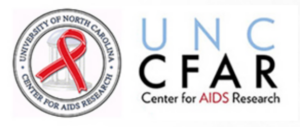Partnerships
The UNC Center for Bioethics has the advantage of a robust network of collaborative partnerships with other programs, both at UNC and beyond. These partnerships and their inaugural joint activities include:
The Department of Social Medicine
UNC School of Medicine
The traditional home for bioethics with the UNC School of Medicine, the Department of Social Medicine continues to be the UNC Center for Bioethics’ closest institutional partner. The Department successfully mounted the proposal to create the Center as a University-wide unit, and hosts the academic appointments of the Center’s core faculty, and provides the Center’s principal opportunities for medical school teaching.
The Parr Center for Ethics
Department of Philosophy, UNC College of Arts and Sciences
Serving as the “public face of ethics” at UNC, the Parr Center serves as an important host for public discussions of topical ethical issues and sponsors UNC’s collegiate “Ethics Bowl” team. The UNC Center for Bioethics and the Parr Center have established a close working relationship, including:
- Co-Sponsoring guest speakers in bioethics. On Nov. 7, 2010, the Parr Center and the Center for Bioethics co-sponsored Dr. Robert Wachbroit’s lecture, to inaugurate our Visiting Scholars in Bioethics Seminar Series. Since that time, our co-sponsored guest speakers are chronicled under Clinical Ethics Grand Rounds
- Co-Sponsoring a student liaison between the Center for Bioethics and the UNC Bioethics Society which the Parr Center supports.
UNC Health Care
The UNC Center for Bioethics partners with UNC Health to support the UNC Hospital Ethics Committee (HEC) and through that Committee, to support clinical ethics capacity building across the UNC affiliate network.
North Carolina Translational and Clinical Sciences (NC TraCS) Institute
The NC TraCS Institute at UNC is one of 60 medical research institutions working together as a national consortium to improve the way biomedical research is conducted. The consortium, funded through the NIH Clinical and Translational Science Awards (CTSA), shares a common vision to reduce the time it takes for laboratory discoveries to become treatments for patients, and to engage communities in clinical research efforts. It also is fulfilling the critical need to train a new generation of clinical researchers. The Center for Bioethics collaborates with the Institute to co-sponsor the Institute’s Clinical Research Ethics Core, which provides educational activities, consultation services, and research support for the Institute.
The Center for Genomics and Society (CGS)
Carolina Genome Sciences Center, UNC School of Medicine
An NIH-designated “Center of Excellence in Ethical, Legal and Social Implications Research,” the Center for Genomics and Society is an interdisciplinary research center focused on issues emerging with the advent of whole genome sequencing, population-wide genomic screening, and other “large scale” genomic interventions. Dr. Gail Henderson directs CGS, and Dr. Juengst serves as a Center investigator, leading his NIH R01-funded research project, “Anticipating Personalized Genomic Medicine”. Center for Bioethics Core faculty Rebecca Walker, Arlene Davis, and Jean Cadigan also serve as investigators for the CGS.
 The UNC Center for AIDS Research (CFAR)
The UNC Center for AIDS Research (CFAR)
UNC School of Medicine
The NIH-supported UNC CFAR connects the School of Medicine and the School of Public Health in conducting and supporting all stages of HIV research. The CFAR includes an Ethics Program, designed to integrate ethical considerations into each of the CFAR’s principal research programs. The Ethics Program is directed by Dr. Stuart Rennie, and includes Dr. Juengst and Dr. Gail Henderson as faculty members. Together, the Ethics Program and the Center for Bioethics are currently seeking support for a co-sponsored faculty development award program to encourage research on ethical issues in HIV research and clinical care by UNC faculty.
 ĦIVE – Health and Humanities: An Interdisciplinary Venue for Exploration
ĦIVE – Health and Humanities: An Interdisciplinary Venue for Exploration
We are a group of researchers dedicated to linking the humanities and health sciences through student-centered research projects, innovative curricula, and public engagement. Our mission is to help prepare the next generation to think across disciplines, consult their values and passions, and tackle real-world problems to create meaningful social change.
Moral Distress Consultations Collaborative (MDCC)
The Moral Distress Consultation Collaborative (MDCC) is an interprofessional, multi-institutional community of leaders in moral distress consultation with the exciting goals of establishing best practices in MDC, conducting novel and innovative research, developing effective mechanisms for training new consultants, and providing resources for new and developing MDC programs.
